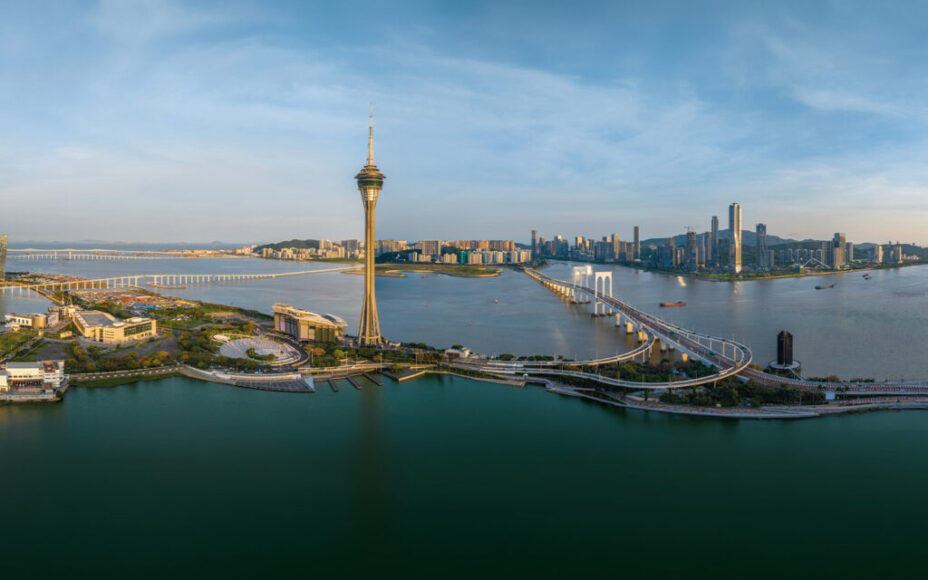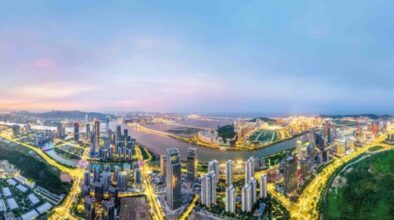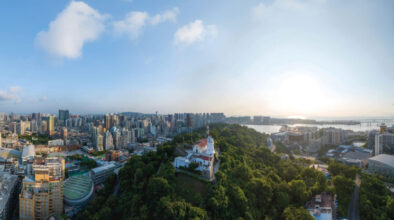Over the past quarter century, Macao’s traditions, heritage and history have been preserved. And yet, the city has grown. It’s modernised and has become more international. As it’s done so, the quality of life for everyone who calls it home has improved. Macao has earned its reputation as a harmonious fusion of old with new, local with global.
The region’s progress is testament to the strength of the ‘One Country, Two Systems’ policy; a visionary concept devised by Deng Xiaoping in the early 1980s. Then the Joint Declaration of the Government of the Portuguese Republic and the Government of the People’s Republic of China was signed in accordance with the ‘One Country, Two Systems’policy in 1987. This historic accord paved the way for Macao’s seamless transition into a flourishing Special Administrative Region (SAR) of China – the 25th anniversary of which we are now celebrating.
During those years, the region has enjoyed a high degree of autonomy from the mainland (two systems) while becoming increasingly integrated with the nation (one country). This dual achievement boils down to unwavering support from the Central Government and the visionary leadership of Presidents Jiang Zemin, Hu Jintao and now, Xi Jinping.
In the resolution adopted at the third plenary session of the 20th Central Committee of the Communist Party of China on 18 July, the institutional importance of the ‘One Country, Two Systems’ policy was reaffirmed. This policy would both support Macao’s mission to prove itself as an international nexus for high-calibre talent and enhance the SAR’s ability to contribute as the nation opens itself up to the outside world, the resolution stated.
A tradition of patriotism in Macao has also laid a solid foundation for the region’s harmonious development since its return to the motherland. The historical enactment of national security legislation in 2009, and its subsequent amendment in 2023, were milestones in Macao’s integration into national development, demonstrating the region’s ability to play a vital role in safeguarding China’s national security.
Expanding Macao’s horizons
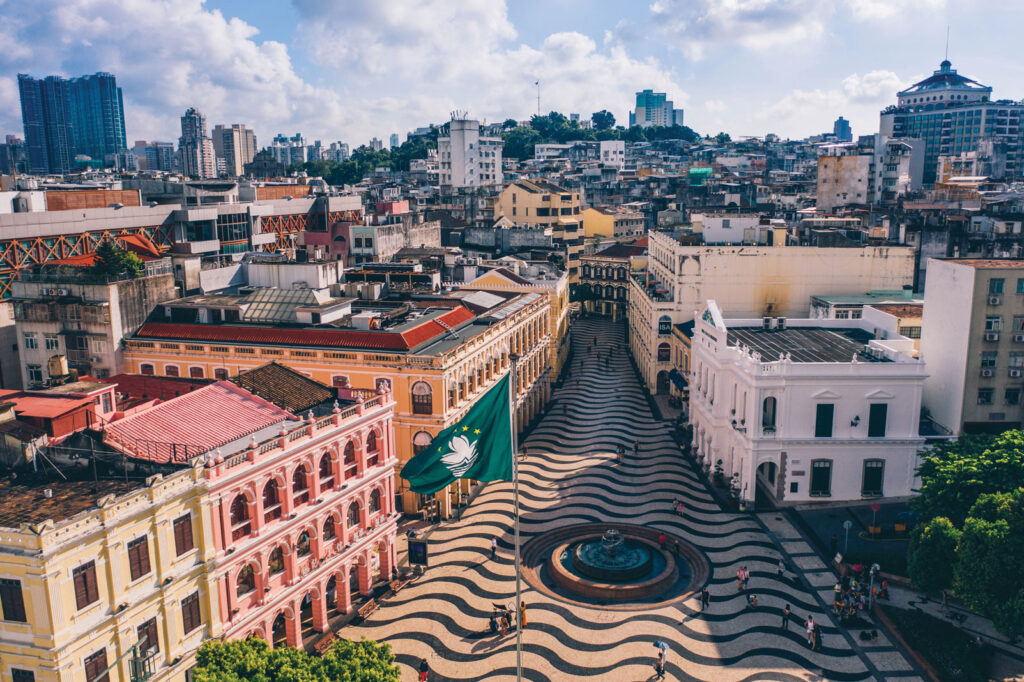
The establishment of the Guangdong-Hong Kong-Macao Greater Bay Area (GBA) in 2017 has been instrumental in Macao’s integration with the mainland. A powerhouse megalopolis uniting the two SARs and nine cities across southern China, the GBA enables close cooperation between its constituents. The Hong Kong-Zhuhai-Macao Bridge, which opened in 2018, is a highly visible manifestation of the GBA, creating a tangible tripartite linkage between the regions.
The Guangdong-Macao Intensive Cooperation Zone in Hengqin, meanwhile, is a GBA initiative enabling Macao to expand beyond its limited land resources. Established in 2021 on Guangdong Province’s Hengqin Island, the zone is subject to joint policies designed to smooth the flow of people and goods across borders while unlocking economic potential for Macao’s populace and commercial sectors.
Ever-increasing regional connectivity amplifies Macao’s reputation as a springboard for foreign companies interested in entering the massive market that is the mainland. The city’s role as an intermediary has been gaining traction since the 2003 launch of the Forum for Economic and Trade Co-operation between China and Portuguese-speaking Countries, also known as Forum Macao. Leveraging its Lusophone heritage (Portuguese remains one of Macao’s official languages), the city serves as a platform for Sino-Lusophone trade through capitalising on deep-rooted cultural connections to facilitate a myriad of exchanges with the mainland.
Progress on the ground
Macao’s geographical footprint, though modest at 33.3 square kilometres, has grown significantly since the close of 1999 thanks to a series of strategic land reclamation projects. The Cotai Strip, a 6.1-square-kilometre stretch of this reclaimed land, stands out as the most ambitious and fruitful of these projects. It’s connected the islands of Coloane and Taipa since 2005, with the merger evident in Cotai’s blended name.
As the location of most of Macao’s integrated resorts, Cotai went on to become Macao’s economic engine. That followed the government’s decision to dissolve a longstanding gaming monopoly, leading to a proliferation of premier hospitality and entertainment venues in the city – accompanied by high-end dining and shopping options.
Macao’s integrated resorts have positioned the city as a leading entertainment and tourism hub in Asia while creating substantial employment opportunities for its workforce. They have also been a boon for local businesses, many of which have found new opportunities as suppliers to the booming resort industry. As a result, the standard of living in Macao has soared over the past two decades.
Macao can now pride itself on a robust public healthcare system and comprehensive support for its vulnerable populations, including seniors. Residents benefit from 15 years of free education and have access to four public higher education institutions, along with several private ones. The government has been proactive when it comes to developing public housing, establishing premier sports and cultural facilities, and investing in a broad network of health centres.
Quality of life will continue to rise as Macao’s economy diversifies. Formalised in a five-year plan unveiled in November 2023, the government’s diversification strategy targets growth in four key sectors: ‘big health’, with a focus on traditional Chinese medicine; modern financial services; high technology; and the MICE (meetings, incentives, conventions and exhibitions) industry, including large-scale cultural and sporting events. These sectors are set to grow in prominence over the next three years.
Illustrating the city’s national integration, the strategy fully aligns with the Central Government’s 2020 five-year plan and its 2019 development plan for the GBA.
Heritage at the heart
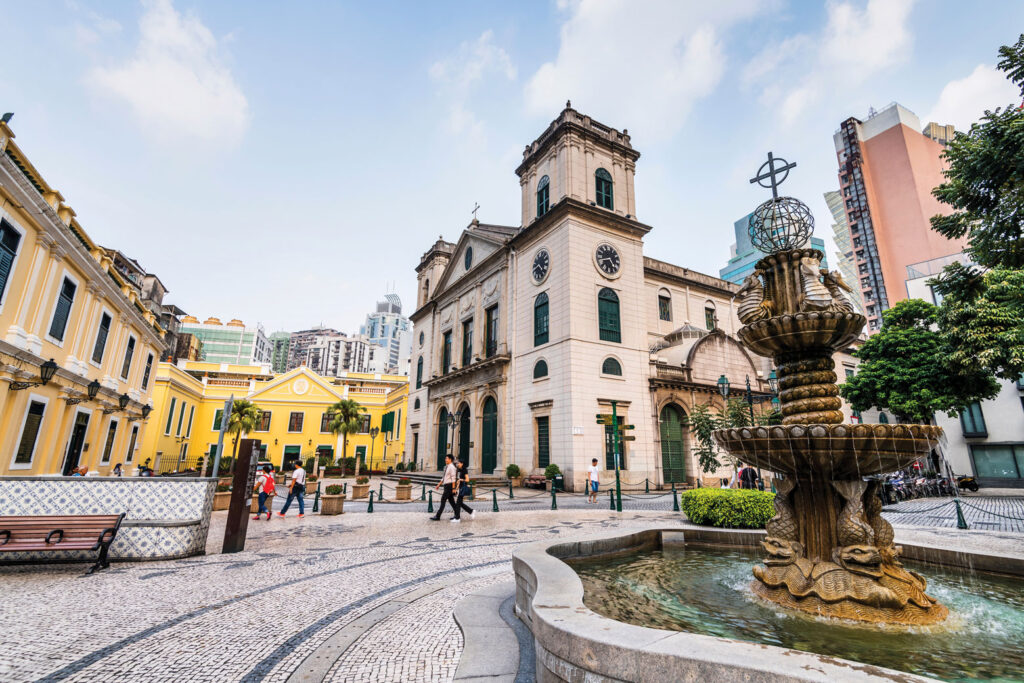
While Macao has made significant economic strides since its return to the motherland, a rich cultural heritage remains a cornerstone of the city’s identity. Nestled within the heart of its old town are centuries-old, meticulously conserved buildings that showcase the SAR’s distinctive blend of Chinese and Portuguese influences. From the iconic Ruins of St Paul’s to the revered A-Ma Temple, Macao’s Historic Centre reflects the city’s multicultural history, earning its place on the UNESCO World Heritage List in 2005 as its 31st designated site in China.
The government is dedicated to preserving these 22 architectural gems. They are at the core of Macao’s burgeoning cultural tourism sector, along with Macanese cuisine (considered one of the world’s first examples of culinary fusion) and a large number of other intangible heritage treasures.
The future looks bright
As a Special Administrative Region of China, Macao is administered by its own people, with a high degree of autonomy. People who, at the same time, proudly demonstrate their love for the motherland.
Encouraged to actively contribute to China’s ongoing economic, technological, and social progress, the people of Macao are helping shape the nation’s trajectory. The fruits of this collaboration are increasingly evident as the SAR’s reputation as a safe and vibrant place to live, work and study grows ever stronger. This is proof of society’s dedication to tradition, progress and the ‘One Country, Two Systems’ policy.
